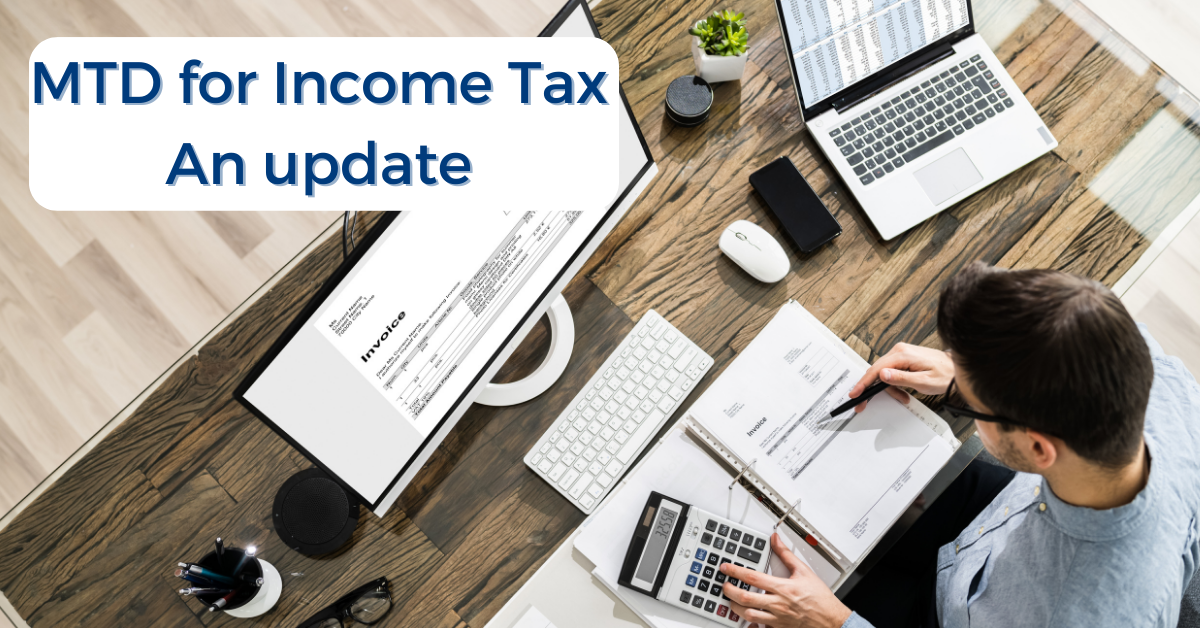MTD: Income Tax Self Assessment (ITSA)
Following on from our previous article, Making Tax Digital (MTD) for Income Tax Self-Assessment. We want to share more of what we have learnt about this big change to self assessment that will soon affect sole traders and landlords.
This article has been updated for the changes announced by HMRC in December 2022.
MTD Self Assessment Digital Start Date
The digital start date for existing businesses and property sources with income of £50,000 or more that exist on 5 April 2025 is 6 April 2026.
Taxpayers with an annual income of between £30,000 and £50,000 will join the scheme from 6 April 2017.
The government are consulting on how partnerships and other taxpayers with income levels of less than £30,000 will be dealt with under MTD ITSA.
Each source will have its own digital start date, for example a sole trader who has been trading for many years will have a digital start date of 6 April 2026 for trade. If he then starts property letting in June 2026, as the property income was not in existence at 5 April 2025 the digital start date for the property income will not be 6 April 2026.
Income exemption
The income exemption for MTD is £50,000 per annum for 2026/27 and reduces to £30,000 from 6 April 2027. This is the total turnover from all trades, plus gross rents and property income. The income to consider in the exemption test is before any trading or property income allowances.
Digital records will need to be kept up to date at least quarterly.
Digital start date is the date from which the business must comply with digital obligations and keep digital records and make submissions.
Once in MTD and income falls below the exemption threshold, dropping out of MTD will be allowed if the income for the last 3 years is below the threshold.
Digital Obligations
- Keep digital records
- Make quarterly submissions
- Submit End of Period Statement (EOPS) by 31 January
In addition to the digital obligations is the requirement to finalise the tax position, ie submit the self assessment tax returns to report other income etc by 31 January.
Quarterly submissions ~ MTD Self Assessment
Totals of transactions (not full transaction details) recorded in the digital records must be submitted quarterly. The quarter dates and due dates are detailed below:
| Quarter | Quarter Date | Due Date |
| 1st | 6 April to 5 July | 5 August |
| 2nd | 6 July to 5 October | 5 November |
| 3rd | 6 October to 5 January | 5 February |
| 4th | 6 January to 5 April | 5 May |
There will be an option to elect to report for calendar quarters, ie 31 March, 30 June, 30 September and 31 December. The due date will be the same as noted above.
Each trade has separate obligations, ie if there are two trades there will be 2 quarterly reports.
Property business
There are two types of separate reporting obligations:
- UK property business including letting and furnished holiday letting
- Overseas property business
End of period statement (EOPS)
One for each business activity, ie each trade and for property business will be required to be filed by 31 January after the end of the fiscal year, ie 6 April 2026 to 5 April 2027 will be due 31 January 2028. The statement will include a summary of the 4 quarters and a declaration the information submitted is correct and complete. A list of properties for a property business will be required to be reported.
How can we help?
We can help you plan now for the coming MTD self assessment changes. Rather than waiting until the last moment it may be beneficial to look at digital records now so that you make a transition to a new way of working at your own pace. We have a specialist knowledge in cloud accounting software and can help get you on track and keep you there.
Shaw Austin are a firm of Chartered Accountants based in Chester supporting independent business throughout the UK. We take the headache out of business accounting and taxation by providing our clients with a personal service.
This article includes tax rates and allowances correct on date of publishing – tax rates and allowances can change from year to year. This is a general article to assist readers. Professional advice should always be taken in respect of your personal circumstances.
Updated March 2023.

